The Most Iconic Olympic Moments of the Past 100 Years


Due to World War I, the year’s Games — which were scheduled to be in Berlin — were canceled. Yet, in true Olympics fashion, a stadium was planned years in advance before this decision was made (this 1913 parade dedicates the very structure). This won’t be the first time the games aren’t held due to war, either. Both the Summer and Winter Games in 1940 and 1944 were canceled in light of World War II.
Photo via Library of Congress
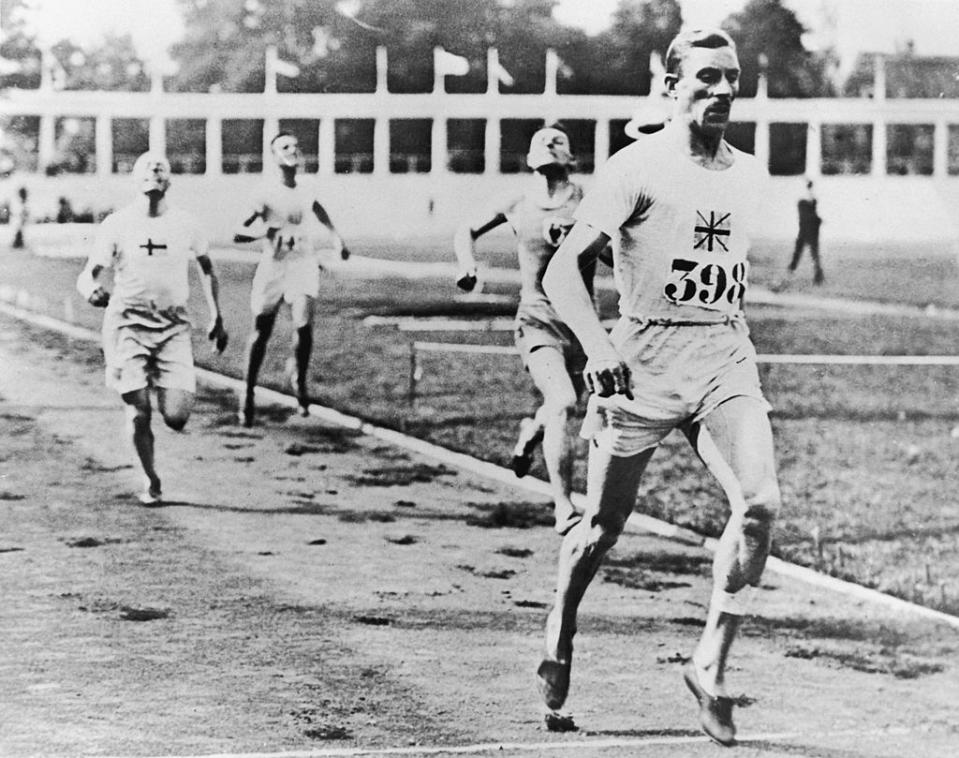
This year’s Summer Games had the distinction of having a week of winter sports (such as ice hockey and figure skating). Of the many notables that year, British competitor Albert Hill won two gold medals — but was nearly not allowed to compete for being “too old” at 31. Yet no one said a word about Oscar Swahn, a 72-year-old Swedish shooter who took home a silver medal that year.
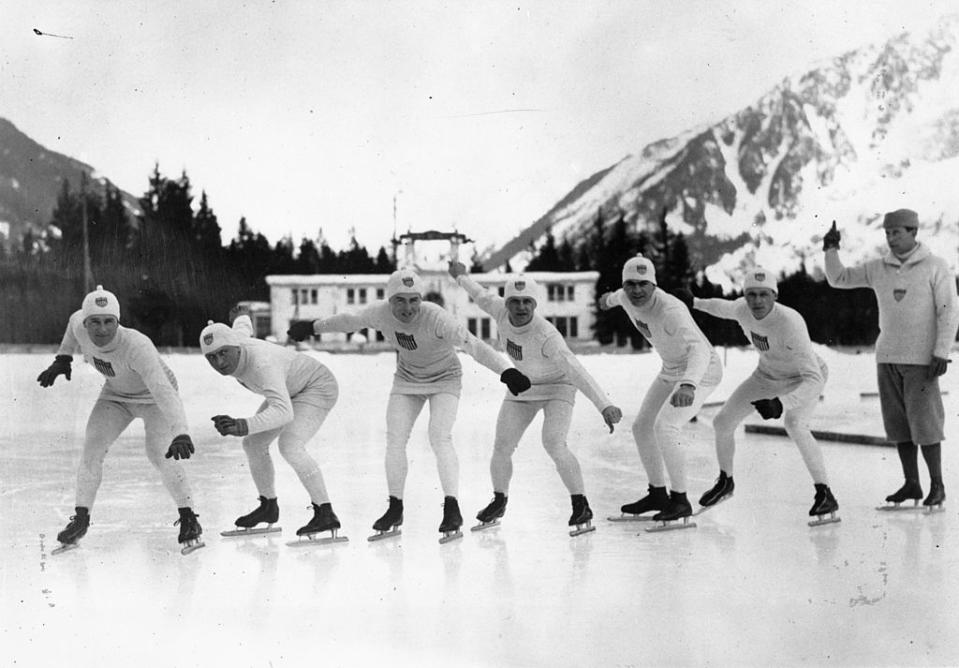
At the first official Winter Olympics (though it would only be recognized as such after the fact, two years later), American Charles Jewtraw (third from right, above) brought home the very first gold medal after he won the 500 meter speed skating competition.

America was the dominant force of the Summer Games, specifically in the track and field events, and brought home 32 medals in total. American Harold Osborn was just one of the many winners, winning gold in the high jump.

While the ‘24 Winter Games were retroactively labeled the “First” Winter Olympics, it was 1928’s Winter Games that got the official nod for this title for being held in a completely different country than the Summer Games. (Following?) In 1928, Japan made its Olympics debut, and a 15-year-old competitor named Sonje Henie became the youngest winner of an individual event for her figure skating victory. Henie’s record would stand for 74 years.
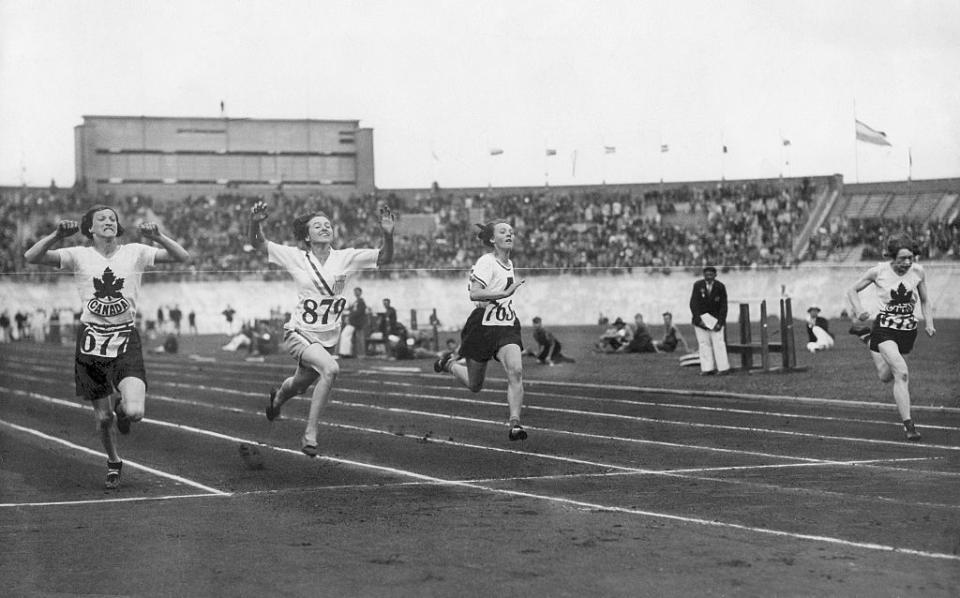
This year marked the first time women were allowed to compete in track and field events (here, American runner Elizabeth Robinson wins the 100 meter race). However, the hard-fought achievement came with a setback: After observing a few exhausted competitors after the 800 meter races, officials prohibited women from running races longer than 200 meters … all the way up until 1960.

It was a sweep for American speed skater Irving Jaffee, who won the gold for both the 5000 and 10000 meter events.

An icon was made when Mildred Ella “Babe” Didrikson won two golds in the javelin and hurdles, along with a silver in the high jump.
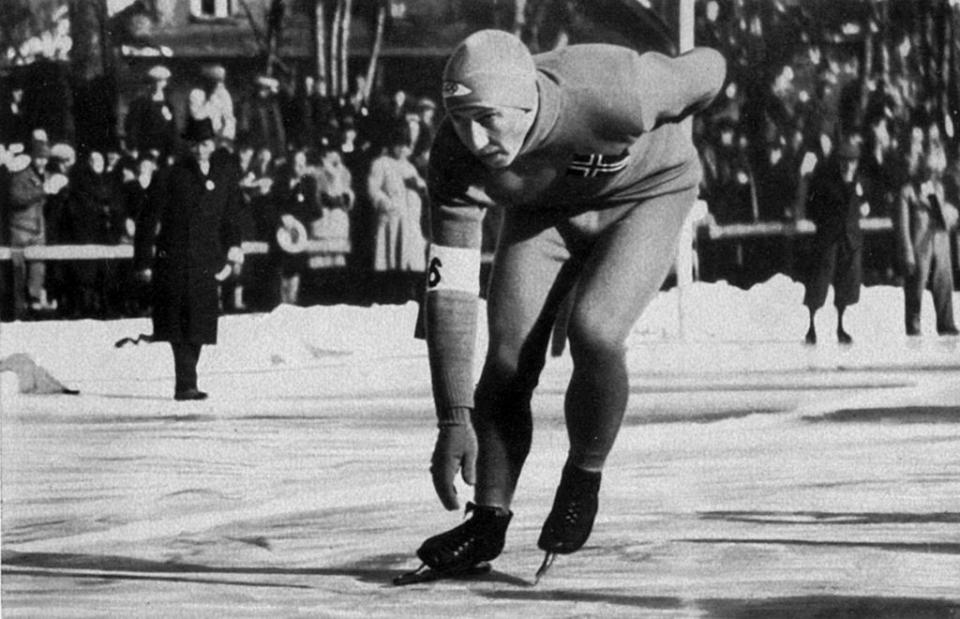
Organized by Adolf Hitler, an ominous tone defined these Winter Games. (Though it wasn’t as infamous as the Summer Games that year.) Norwegian speed skater Ivar Ballangrud swept the 1500, 5000, 10000-meter events, and also earned a silver in the 1500-meter.

Hitler used the Summer Games (which were the first ever to be televised) as an opportunity to spread propaganda. Boycotts leading up to the events were unsuccessful. Yet, there was a brief moment of hope when Jesse Owens won four gold medals and set a world record in the long jump.

These Winter Games were the first Olympiad held after World War II. The United States took the spotlight with its first figure skating gold as the gravity-defying Dick Button landed the first double axel in competitive history.
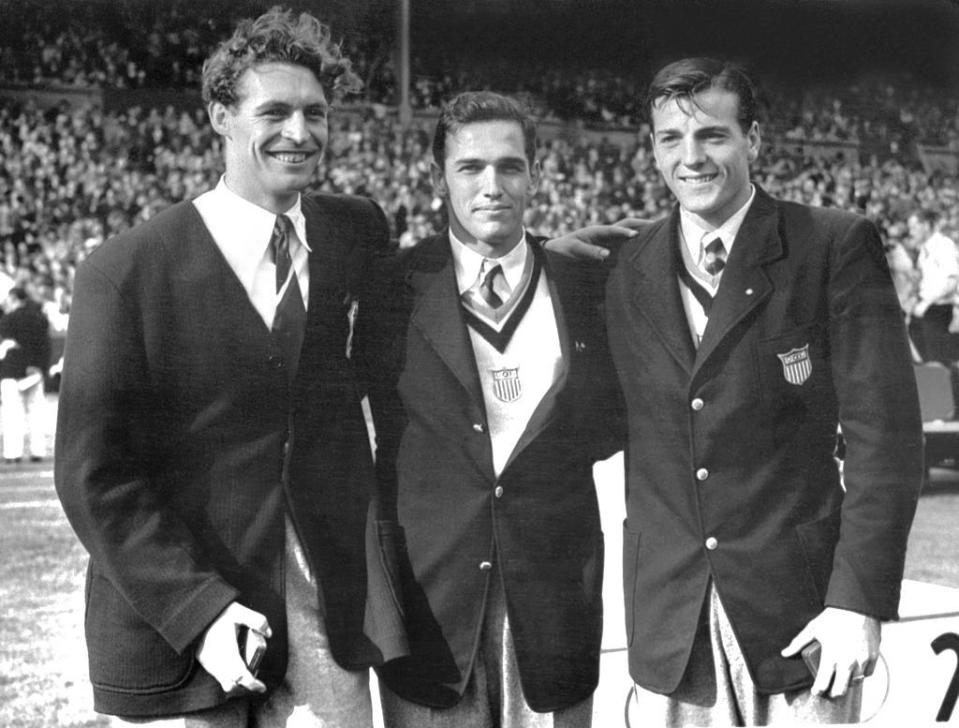
Youth won again when American 17-year-old Bob Mathias (center) became the youngest track athlete ever to win an event: the decathlon.

Dick Button enjoyed another victory and landed the first ever triple loop. But the real story that year was Norwegian speed skater Hjlamar Andersen, who won three medals and notably the 5000 meter and 10000 meter events by record margins.
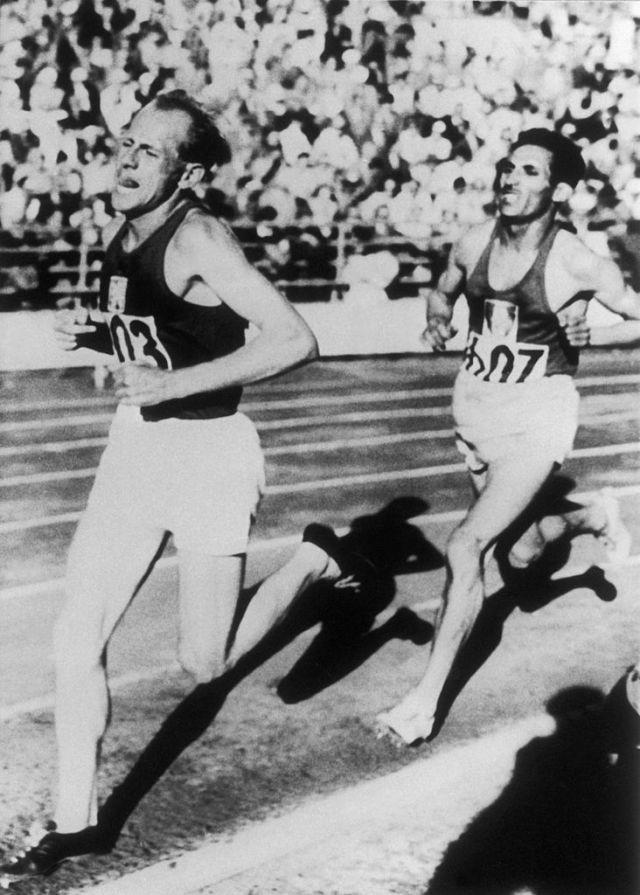
Czech distance running icon Emil Zapotek became the only person ever to win the 5000 meter, 10000 meter and marathon events in the same Olympiad. We are exhausted just thinking about this impressive feat!
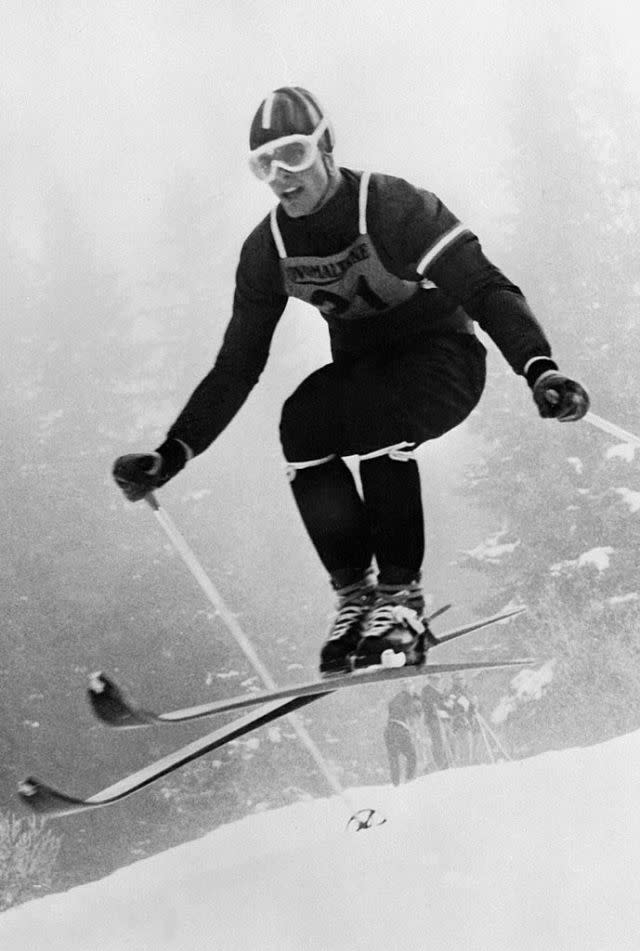
Though the 1936 Games were the first to be televised, the 1956 Winter Games were the first to be broadcast to a multi-national audience. Thousands tuned in to see Austrian Toni Sailer become the first Alpine skier to win three gold medals.
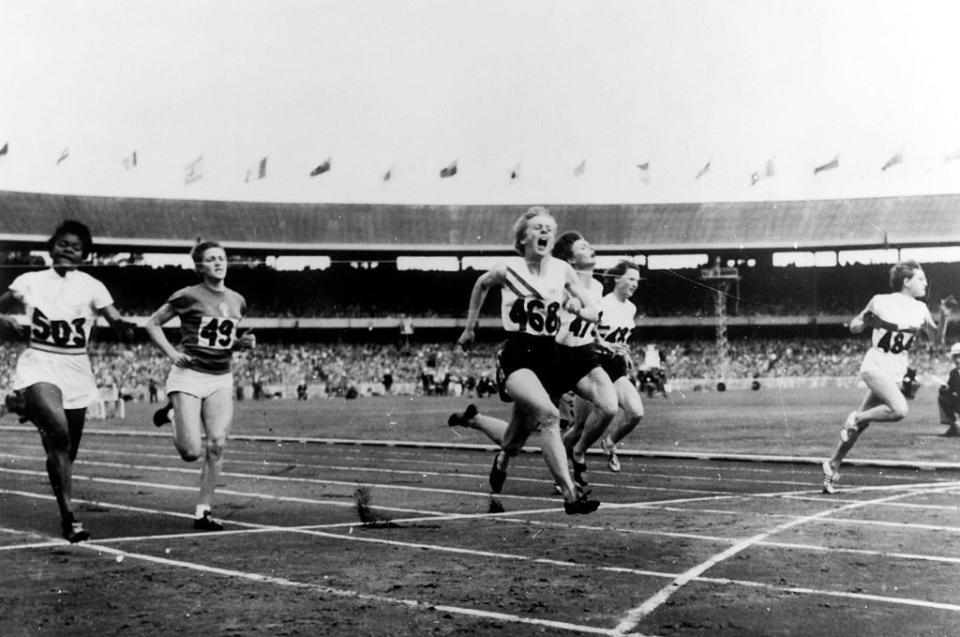
Australian Betty Cuthbert won three gold medals in the 200 meter , 4x100 meter and 100 meter events.

History was made when the U.S. Men’s Olympic Hockey team won its first gold. Meanwhile, women were allowed to compete in speed skating for the first time.

American boxer Muhammad Ali won a gold in the light heavyweight boxing division. Ethopian runner Abebe Bikila won the marathon — while running barefoot.

It had only been four years since women were allowed to compete in speed skating, but a sweep was already upon the category when Russian Lidiya Pavlovna Skoblikova topped all four women’s speed skating events.

Future heavyweight champion Joe Frazier won a gold in boxing. Soviet gymnast Larisa Latynina became the most decorated Olympian after wining two gold medals, a silver and two bronze medals, which brought her career medal count to 18.

Figure Skater Peggy Fleming won the only gold medal for Team USA in the ladies singles. Meanwhile, at the 500 meter speed skating event, there was a curious sight at the podium: three silver medalists. American competitors Mary Meyers, Dianne Holum and Jennifer Fish all finished with the same time in the final (46.3).

American sprinters Tommie Smith and John Carlos finished first and third, respectively, in the 200 meter dash. On the podium, they defiantly raised their fists in solidarity of the Black Freedom Movement in the United States. This moment would be considered one of the most overt political statements made at the Games.

Sweeps were abound, as USSR skiier Galina Kulakova won all three women’s cross country events and Norwegian speed skater Ard Schenk also won three golds.
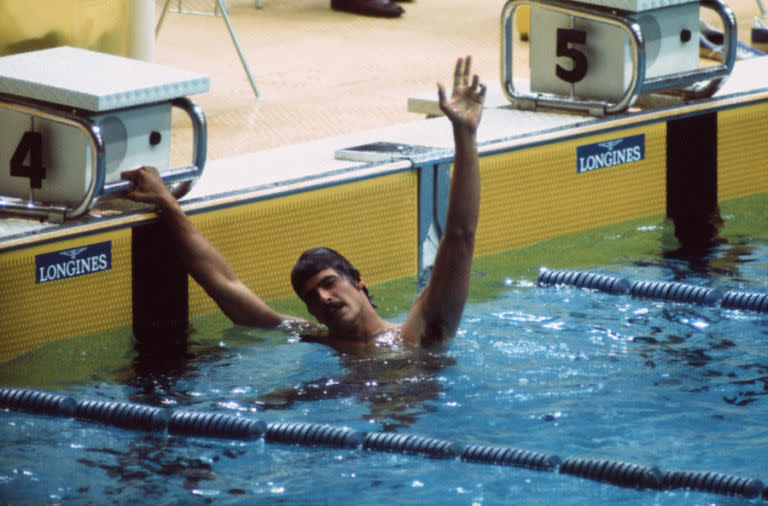
Though Mark Spitz set an Olympic record with seven gold medals, the Summer Games were marred with the murder of 11 Israeli athletes by the Black September offshoot of the Palestine Liberation Organization.
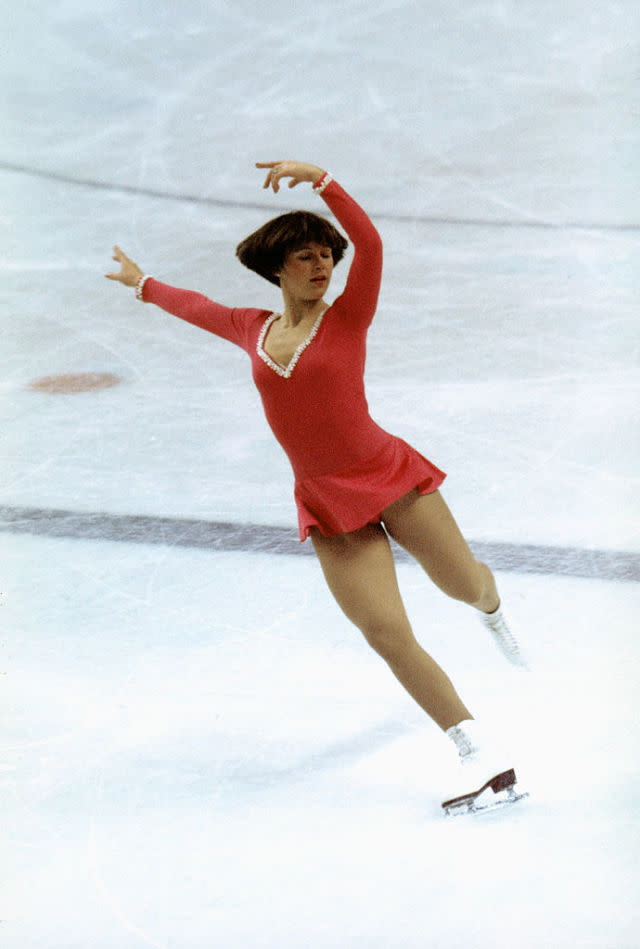
It was an exciting year for figure skating. Dorothy Hamill won the women’s singles gold medal, while Terry Kubicka nailed the first backflip in competitive figure skating history.
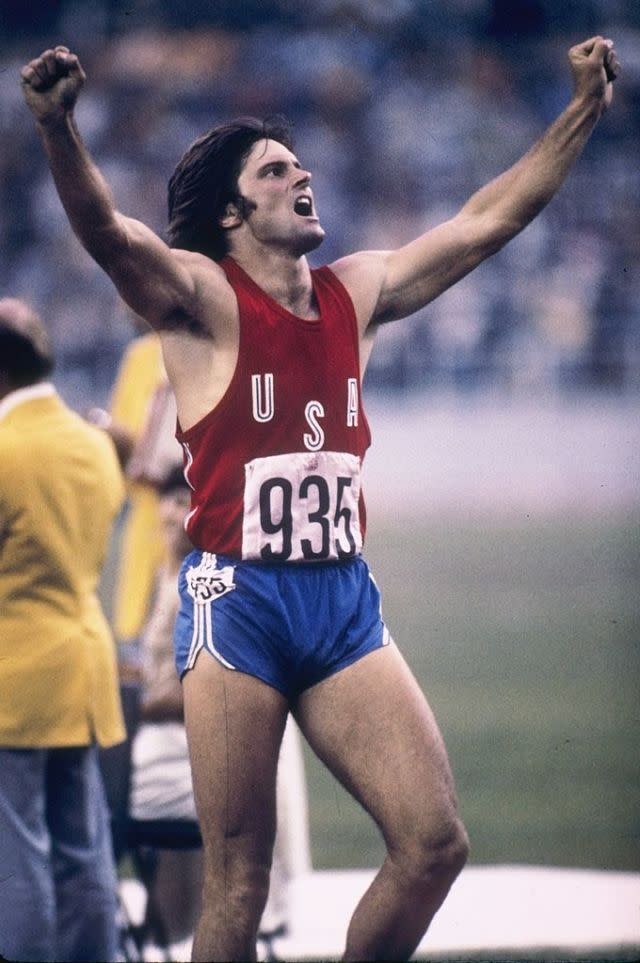
Fourteen-year-old Romanian gymnast Nadia Comaneci received the first ever perfect score in the uneven bars to win the All Around competition. The most iconic moment of the Summer Games, however, was when Caitlyn (then Bruce) Jenner won the decathlon with a world record score of 8,618 points.

In a stunning upset, the U.S. Men’s National Hockey team defeated the USSR National Team in what was later called “The Miracle On Ice.” Elsewhere on ice: Speed skater Eric Heiden became the first and only person to win five gold medals in a Winter Olympics.
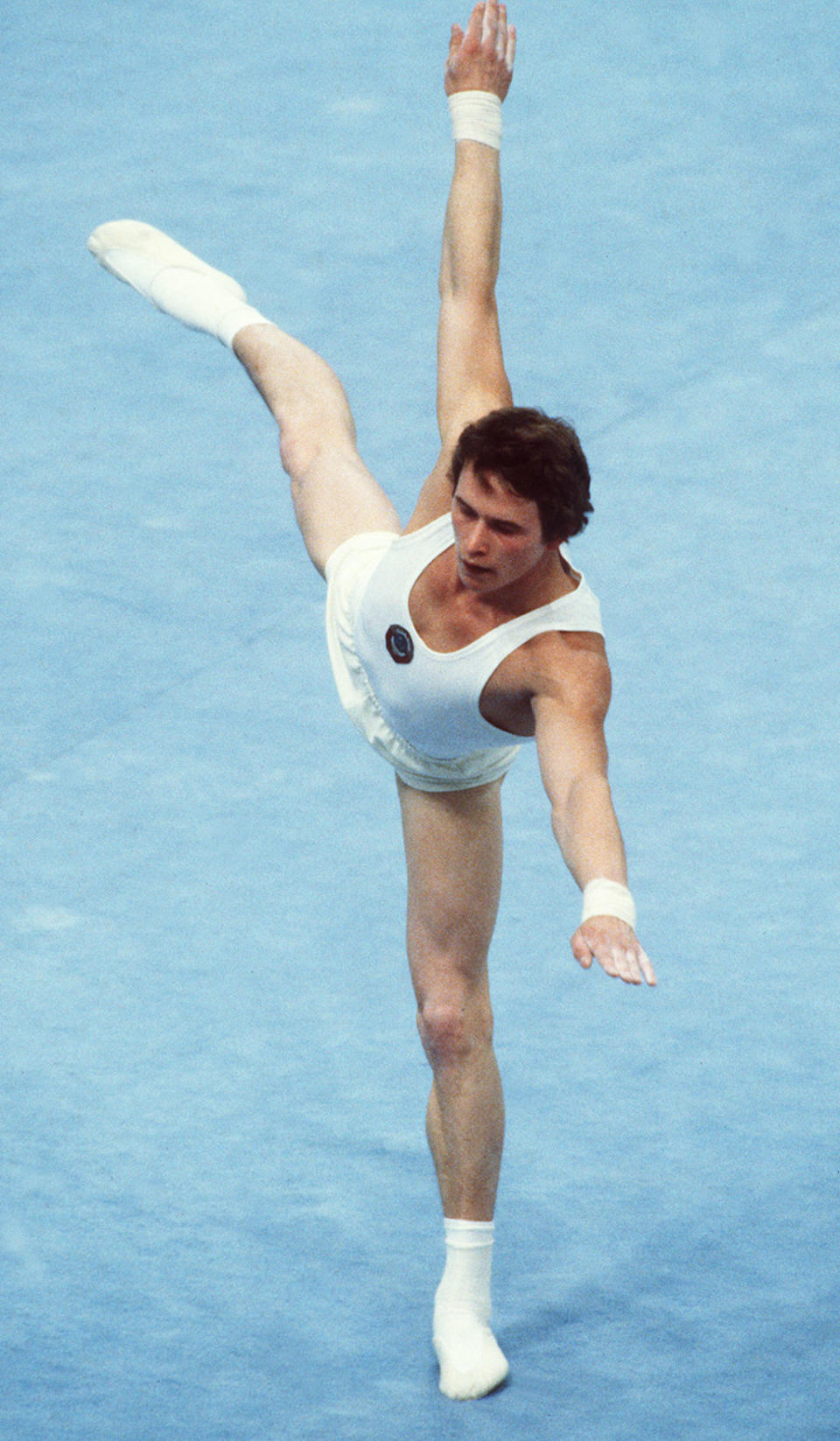
A boycott, led by the United States, overshadowed much of the 1980 Summer Olympics. Aleksandr Dityatin became the first person to score eight medals in a single Olympiad, in every men’s gymnastics event.
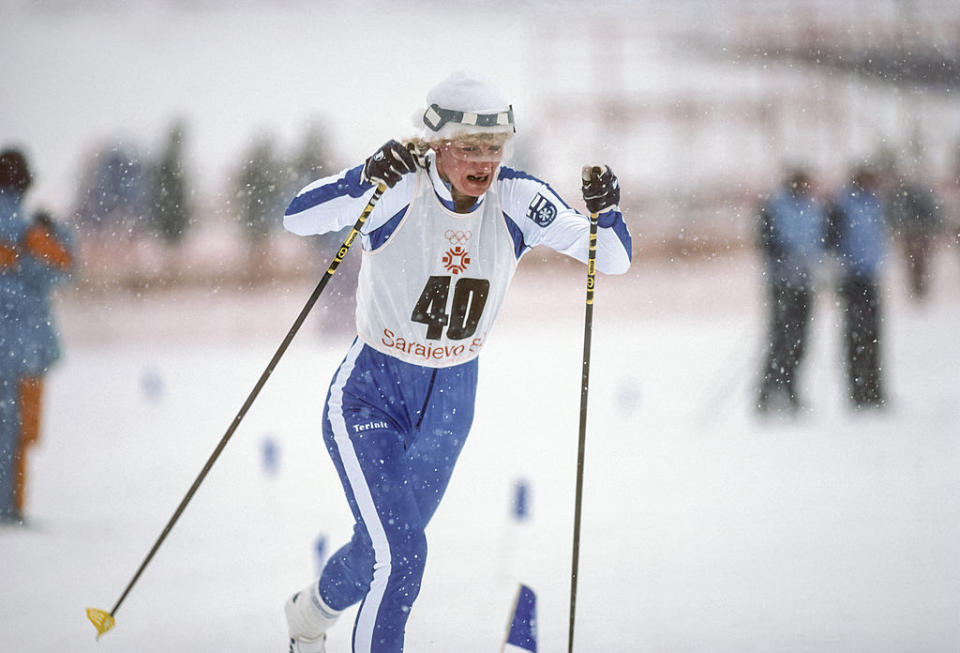
Skier Marja-Liisa Kirvesniemi-Hämäläinen of Finland became the only woman to compete in six different Olympiads. She took home three golds and a bronze.
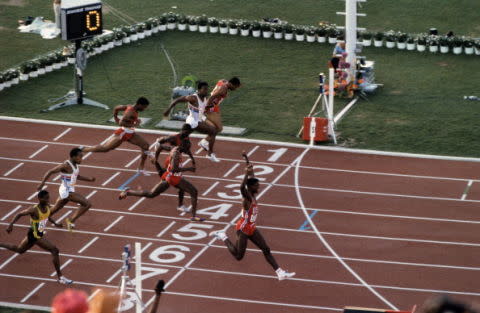
Carl Lewis won four gold medals in the 4x100 meter, 100 meter, 200 meter and long jump events. However, Mary Lou Retton, on an injured knee, became the star of the Games after winning gold in the all-around, which capped a five-medal performance.
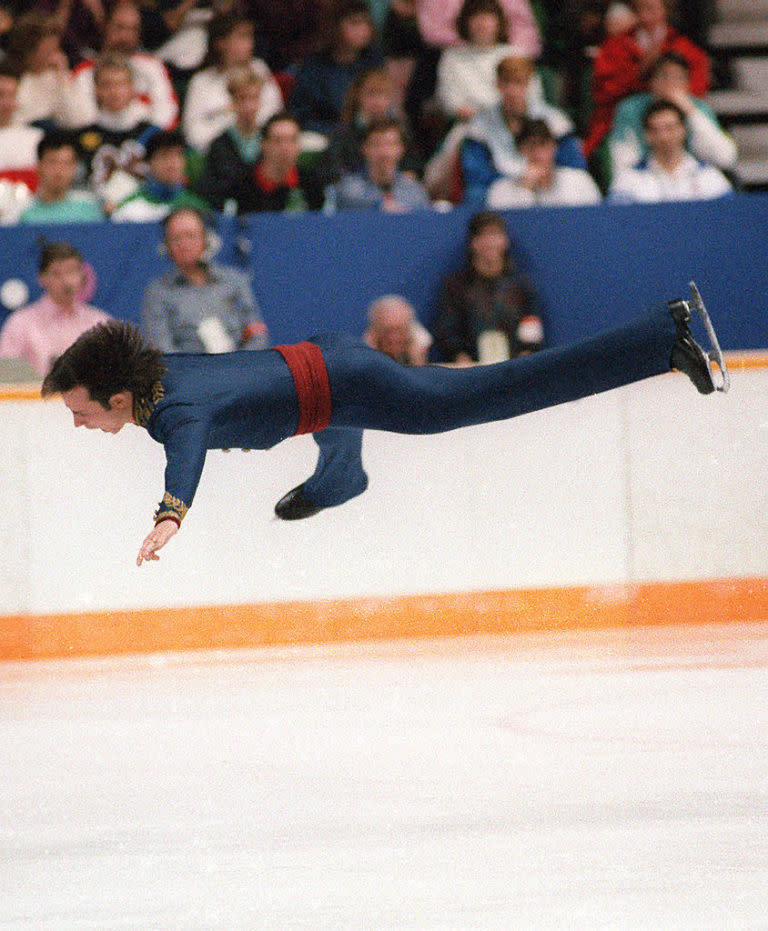
Brian Boitano won a gold medal in the singles figure skating competition. This was also the year that the Jamaican bobsled team made its debut.

The excitement was never-ending in the 1988 Summer Games. Florence Griffith Joyner won the 100 meter, 200 meter, 4x100 meter events and earned a silver in the 4x400 meter. Diver Greg Louganis overcame a concussion in the preliminaries to win and repeat as champion in the springboard final. East German Christa Rothenburger, who won a speed skating medal in the Winter Games, won a cycling medal and became the first person to win medals in both Olympiads in the same year.

American speed skater Bonnie Blair won the 500 meter and 1000 meter events. Norway swept all six men’s cross country skiing events.

Basketball welcomed professionals and the American “Dream Team” led by Michael Jordan, Larry Bird, Magic Johnson and Charles Barkley. (They easily won a gold.) Emotions were high when sprinter Derek Richmond tore his hamstring in the 400 meter semi-finals and was helped by his father to complete the lap.
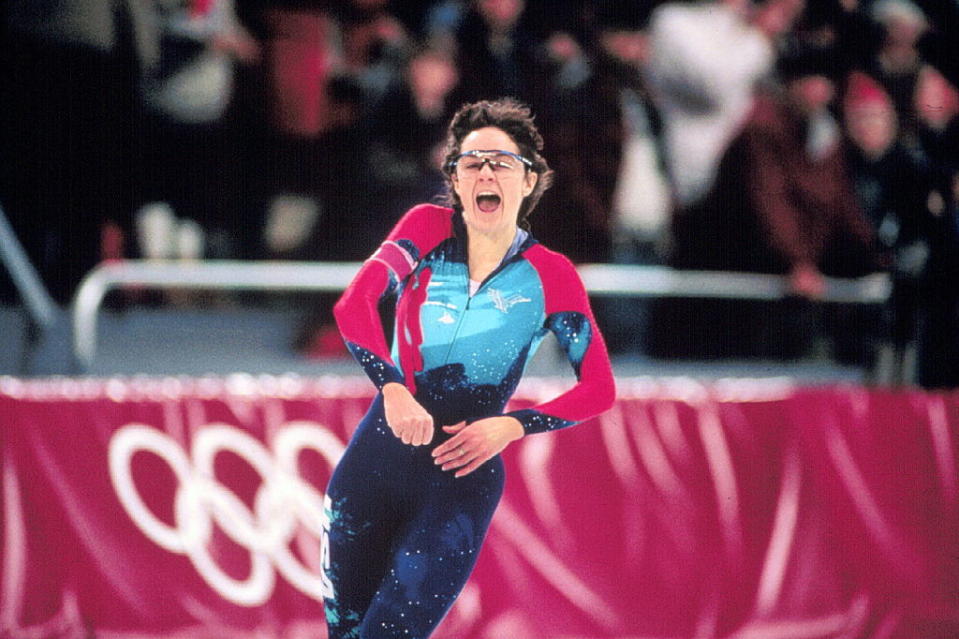
It was a shift in tradition when the Winter Olympics broke from its usual timing (to be held in the same year as the Summer Games). And while we may remember 1994 for Tonya Harding’s infamous attack against Nancy Kerrigan during the U.S. Figure Skating Championships, Bonnie Blair also became the first woman to win three 500 meter Olympic gold medals in a row.
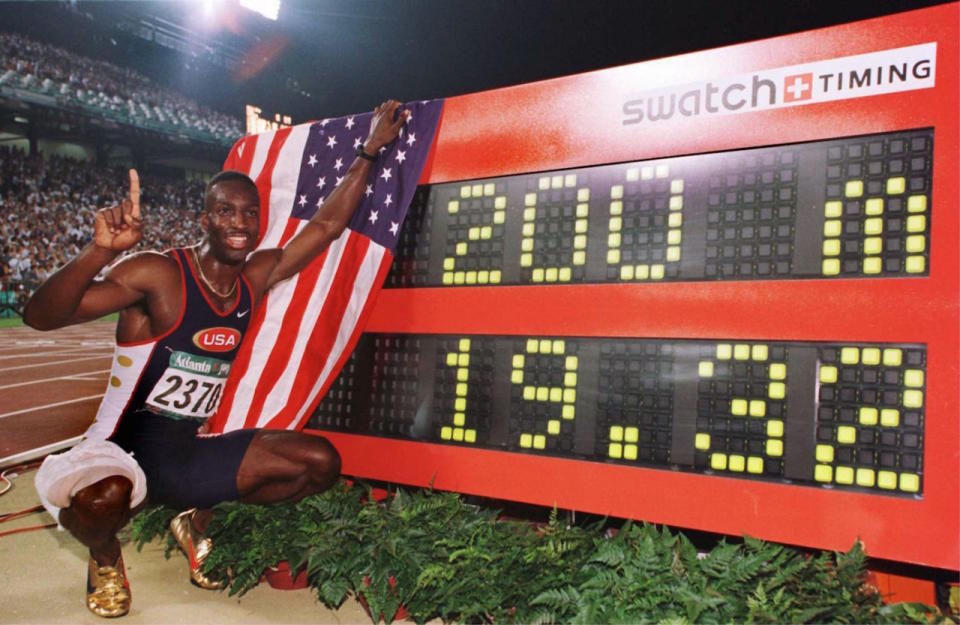
An iconic moment was made when Muhammad Ali lit the Olympic flame, but the 1996 Summer Games was marred by a bombing that left two dead and 111 injured. America triumphed when Michael Johnson won the 400 meter event and established a new world record in the 200 meter event. Gymnast Kerri Strug nailed the landing on an injured foot to help Team USA win in the All-Around.
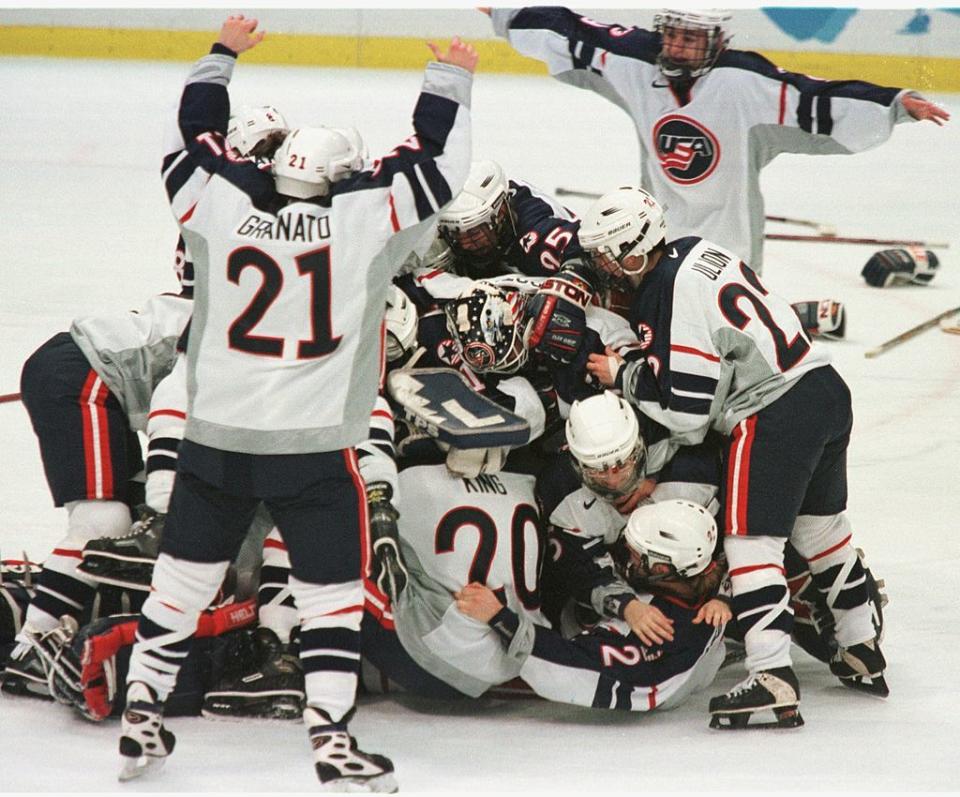
Austrian alpine skier Hermann Maier survived a tremendous fall in the downhill and wound up winning the giant slalom and the Super-G events. Women’s hockey makes its debut as an event, and the U.S. Women’s Hockey team won its first-ever gold.
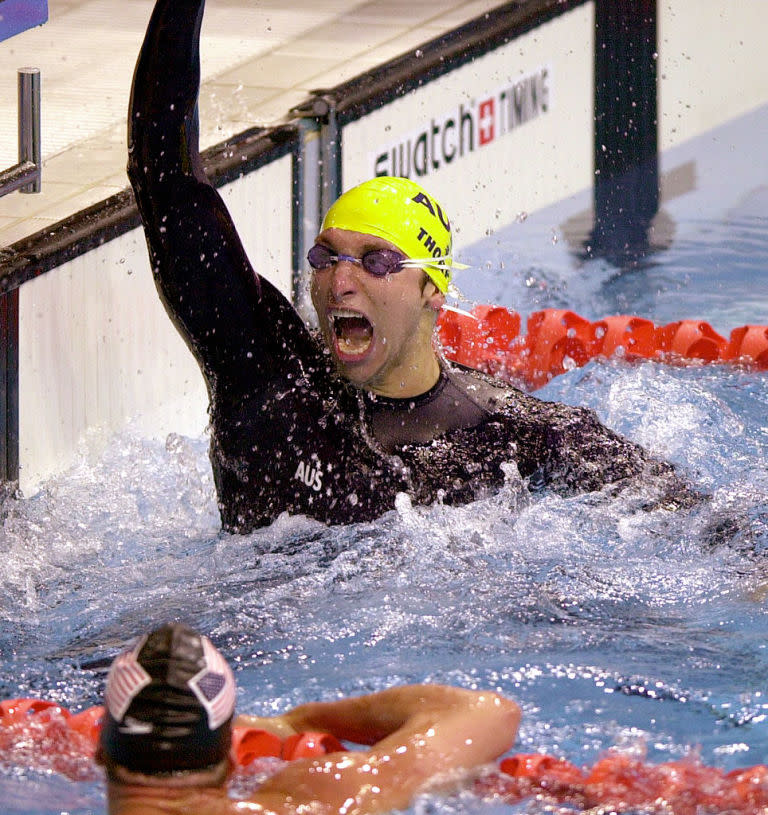
Steven Redgrave became the first rower to medal in five consecutive Olympiad. American wrestler Rulon Gardner shocked the world by defeating the undefeated Russian Alexandre Kareline. Yet, 18-year-old swimming phenom Ian Thorpe was undoubtedly the star of the Summer Games, winning three gold and two bronze medals.
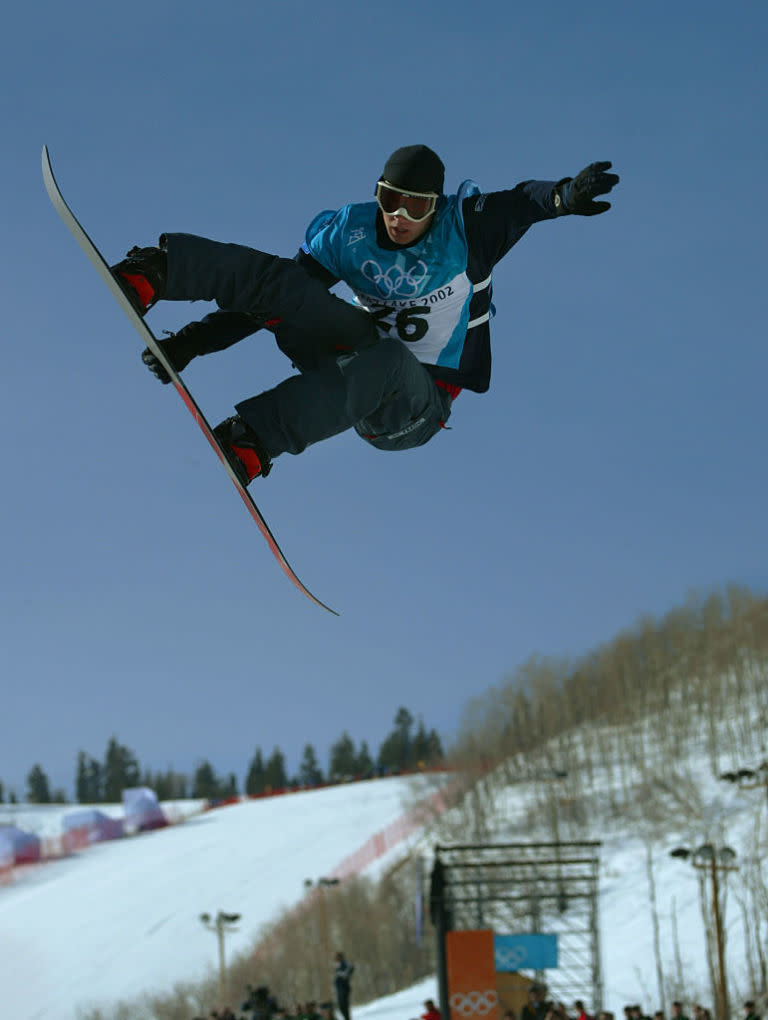
Americans Ross Powers (seen here), Danny Kass and J.J. Thomas won the gold, silver and bronze medals in the men’s halfpipe event, while American snowboarder Kelly Clark won the gold in the women’s event. Australian speed skater Steve Bradbury capitalized on a crash involving four rivals to win the gold in men’s short track.

Michael Phelps won six gold medals while earning a record eight total. Out of the water, the U.S. Women’s Softball team dominated and took home the gold.

Speed skater Apolo Anton Ohno won gold in the 500 meter event, but perhaps even more memorable was when Tanja Freiden of Switzerland passed Lindsey Jacobellis (who fell while celebrating) and secured the gold in the snowboard cross event.
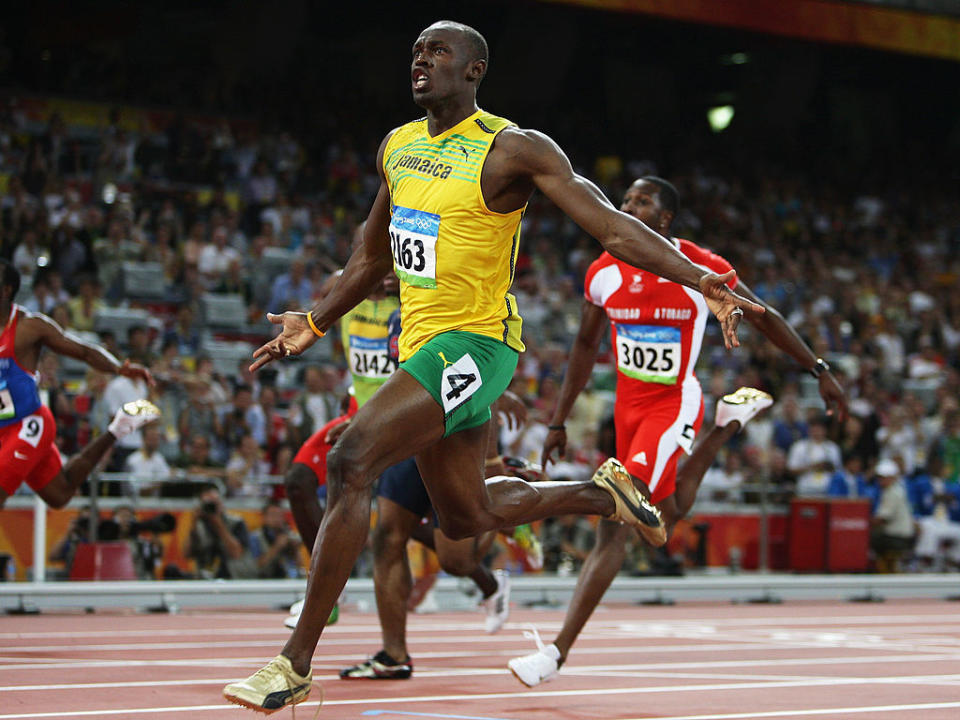
Michael Phelps set a record of eight gold medals in a single Olympiad. It was also the year that Usain Bolt set effortless-seeming world records in the 100 meter and 200 meter events, and won another gold in the 4x100 meter event.

Canada dominated America in the men’s hockey event with a stunning overtime goal by Sidney Crosby. In the women’s hockey matches, Canada also snatched the gold. But America didn’t go home empty-handed: The U.S. team won 37 gold medals, including those won in standout performances by Shaun White.

Phelps adds six more medals, including four gold, to bring his personal count to 22. Gymnast Gabby Douglas won gold in the all-around and another in team, while the U.S. Women’s National soccer team won its fourth gold medal in five Olympics in front of a record crowd.
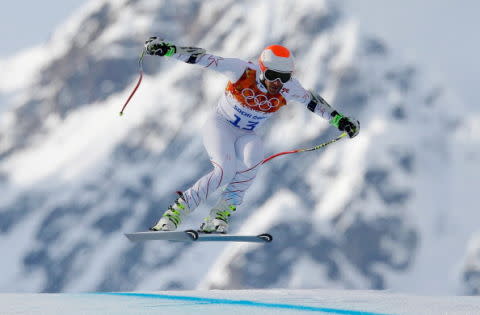
Norway’s Marit Bjørgen was the “Queen of the Olympic Games,” adding three more golds to her medal count for skiing events and also became the most successful female Winter Olympian ever. Another inspiring moment happened when, at the age of 36, American alpine ski racer Bode Miller became the oldest man to win a medal in the Super G.
Though we often think of Olympic highlights in terms of the most recent record-breaking feat, there are so many other breathtaking achievements during the Summer and Winter Games. In honor of the upcoming Rio Olympics, we’re taking a glimpse into the events that changed history.

 Yahoo Sport
Yahoo Sport 





































